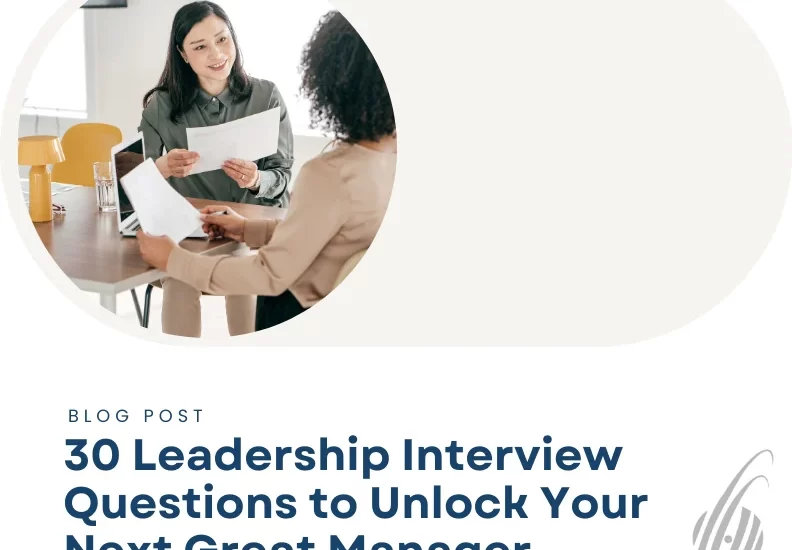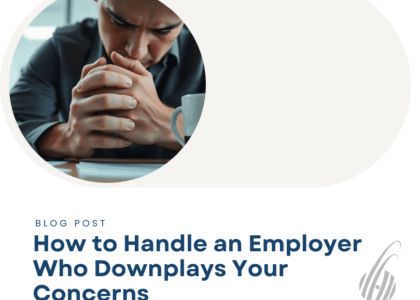Hiring a manager is a crucial decision. They’re not just filling a position; they’re shaping team culture, driving performance, and representing your company’s values. A great manager can elevate an entire department, while a poor one can damage morale and productivity. That’s why asking the right questions during the interview process is paramount.
In this article Cradlefin Consultants team provides 30 leadership interview questions, categorised for clarity, to help you identify candidates who possess the essential qualities of effective managers: strategic thinking, emotional intelligence, delegation skills, and a commitment to team growth.
I. Strategic Thinking & Vision:
These questions gauge a candidate’s ability to see the big picture and plan for the future.
Describe a time you developed a strategy to overcome a significant business challenge. What were the key elements of your plan and how did you execute it? (Assesses strategic planning and execution skills.)
How do you stay informed about industry trends and incorporate them into your team’s goals and strategies? (Demonstrates awareness and adaptability.)
What metrics do you use to measure your team’s success, and how do these metrics align with the overall company objectives? (Shows understanding of performance measurement and alignment with company goals.)
Imagine your team is facing a period of rapid growth. How would you prepare them to handle the increased workload and maintain quality standards? (Tests ability to anticipate and plan for growth.)
How do you approach risk assessment and decision-making when faced with incomplete information? (Reveals risk tolerance and problem-solving skills.)
II. People Management & Emotional Intelligence:
These questions explore a candidate’s ability to connect with, motivate, and develop their team.
Tell me about a time you had to deliver difficult feedback to a team member. How did you approach the conversation, and what was the outcome? (Assesses communication skills and the ability to handle difficult conversations.)
How do you create a culture of open communication and trust within your team? (Reveals understanding of team dynamics and trust-building.)
Describe your approach to conflict resolution within a team. Can you give an example of a successful resolution you facilitated? (Highlights conflict resolution skills and ability to mediate.)
How do you motivate your team members to achieve ambitious goals, even when they are facing challenges? (Demonstrates motivational techniques and leadership style.)
What steps do you take to ensure that all team members feel valued, respected, and included? (Assesses commitment to diversity, equity, and inclusion.)
How do you tailor your management style to the different personalities and working styles within your team? (Demonstrates adaptability and emotional intelligence.)
Describe a time you made a mistake as a leader. How did you handle it, and what did you learn from the experience? (Reveals self-awareness and ability to learn from errors.)
III. Delegation & Empowerment:
These questions examine a candidate’s ability to effectively delegate tasks and empower their team members.
How do you decide which tasks to delegate and to whom? (Assesses delegation skills and understanding of team member strengths.)
What support and resources do you provide to your team members when you delegate a task? (Reveals commitment to providing support and resources.)
How do you monitor progress and provide feedback on delegated tasks without micromanaging? (Tests ability to balance oversight and autonomy.)
Describe a time you empowered a team member to take on a new challenge. What was the outcome, and what did you learn from the experience? (Demonstrates commitment to developing team members.)
How do you encourage your team members to take ownership of their work and make decisions independently? (Reveals understanding of empowerment and autonomy.)
IV. Performance Management & Development:
These questions delve into a candidate’s ability to manage performance effectively and develop their team members’ skills.
How do you set clear expectations for your team members and ensure they understand their roles and responsibilities? (Assesses clarity in communication and role definition.)
Describe your approach to performance reviews. How do you provide constructive feedback and develop performance improvement plans? (Reveals understanding of performance management processes.)
How do you identify training and development opportunities for your team members to enhance their skills and advance their careers? (Demonstrates commitment to employee growth.)
How do you handle situations where a team member is consistently underperforming? (Tests ability to address performance issues fairly and effectively.)
What strategies do you use to retain top talent within your team? (Reveals understanding of employee motivation and retention strategies.)
V. Problem-Solving & Decision-Making:
These questions explore a candidate’s analytical skills and ability to make sound decisions under pressure.
Describe a time when you had to make a difficult decision with limited time and information. What was your process, and what was the outcome? (Assesses decision-making skills under pressure.)
How do you approach complex problems that require input from multiple stakeholders? (Reveals collaboration and problem-solving skills.)
What tools and techniques do you use to analyze data and make informed decisions? (Demonstrates analytical skills and data-driven decision-making.)
How do you balance the need for quick decision-making with the need for thorough analysis? (Tests ability to prioritize and make timely decisions.)
Give an example of a time you identified a significant process improvement. What steps did you take to implement the change? (Highlights process improvement skills and initiative.)
VI. Leadership Style & Values:
These questions aim to uncover a candidate’s leadership philosophy and how it aligns with your company culture.
Describe your leadership style. What are your strengths, and where do you see opportunities for improvement? (Reveals self-awareness and leadership philosophy.)
What are the most important values you bring to a leadership role, and how do you embody them in your daily interactions with your team? (Assesses alignment with company values and ethical leadership.)
How would you describe your ideal team culture? (Reveals understanding of team dynamics and culture building.)
By using these 30 interview questions, you can gain a comprehensive understanding of each candidate’s leadership capabilities and identify the individuals who are best suited to lead and inspire your teams.
Remember to tailor the questions to your specific needs and listen carefully to the answers, looking for concrete examples and genuine insights. Investing the time to ask the right questions will ultimately lead to hiring better managers and building a stronger, more successful organisation.
Contact us for a seamless and efficient recruitment experience or alternatively register an employer’s account to advertise your jobs.
0800 471 4684






